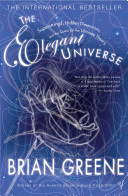Why Traveling at the Speed of Light Slows Down Time
the precise time difference between stationary and moving clocks depends on how much farther the sliding clock's photon must travel to complete each round-trip journey This in turn depends on how quickly the sliding clock is moving—from the viewpoint of a stationary observer, the faster the clock is sliding, the farther the photon must travel to the right. We conclude that in comparison to a stationary clock, the rate of ticking of the sliding clock becomes slower and slower as it moves faster and faster.
To get a sense of scale, note that the photon traverses one round-trip in about a billionth of a second. For the clock to be able to travel an appreciable distance during the time for one tick it must therefore be traveling enormously quickly—that is, some significant fraction of the speed of light. If it is traveling at more commonplace speeds like 10 miles per hour, the distance it can move to the right before one tick is completed is minuscule—just about 15 billionths of a foot. The extra distance that the sliding photon must travel is tiny and it has a correspondingly tiny effect on the rate of ticking of the moving clock. And again, by the principle of relativity, this is true for all clocks—that is, for time itself. This is why beings such as ourselves who travel relative to one another at such slow speeds are generally unaware of the distortions in the passage of time. The effects, although present to be sure, are incredibly small. If, on the other hand, we were able to grab hold of the sliding clock and move with it at, say, threequarters the speed of light, the equations of special relativity can be used to show that stationary observers would see our moving clock ticking at just about two-thirds the rate of their own. A significant effect, indeed.
Notes:
An elegant explanation in physical terms of photons and the distances they travel.
Folksonomies: time relativity time dilation light speed
Taxonomies:
/travel (0.665543)
/home and garden/gardening and landscaping/yard and patio (0.469371)
/science/physics (0.407136)
Keywords:
clock (0.907715 (negative:-0.037261)), precise time difference (0.772094 (positive:0.649863)), stationary clock (0.743798 (neutral:0.000000)), correspondingly tiny effect (0.721427 (positive:0.949358)), photon (0.660291 (positive:0.577299)), stationary observer (0.640850 (neutral:0.000000)), round-trip journey (0.631340 (positive:0.205239)), elegant explanation (0.614719 (positive:0.649863)), physical terms (0.611349 (positive:0.649863)), stationary observers (0.607042 (positive:0.294466)), commonplace speeds (0.604781 (negative:-0.393046)), significant fraction (0.592308 (neutral:0.000000)), appreciable distance (0.591603 (positive:0.602477)), slow speeds (0.581978 (negative:-0.800303)), significant effect (0.575566 (positive:0.457760)), extra distance (0.574300 (positive:0.737583)), special relativity (0.573872 (positive:0.294466)), rate (0.531957 (positive:0.183908)), sliding (0.513583 (positive:0.737583)), tick (0.492423 (positive:0.489566)), right (0.477169 (positive:0.490530)), farther (0.473085 (neutral:0.000000)), light (0.462584 (positive:0.649863)), billionth (0.455275 (neutral:0.000000)), photons (0.454727 (positive:0.649863)), two-thirds (0.448052 (positive:0.449510)), distances (0.446032 (positive:0.649863)), travel (0.444737 (positive:0.603441)), distortions (0.441890 (negative:-0.800303)), viewpoint (0.441596 (neutral:0.000000))
Entities:
photon:Company (0.895272 (positive:0.601487)), 10 miles per hour:Quantity (0.895272 (neutral:0.000000)), threequarters:Quantity (0.895272 (neutral:0.000000))
Concepts:
Albert Einstein (0.967129): dbpedia | freebase | yago
Electromagnetic radiation (0.840061): dbpedia | freebase | opencyc
Special relativity (0.823205): dbpedia | freebase | opencyc
Spacetime (0.809683): dbpedia | freebase | yago
Time (0.755790): dbpedia | freebase | opencyc
Light (0.755601): dbpedia | freebase | opencyc
Speed of light (0.696187): dbpedia | freebase | opencyc
General relativity (0.659297): dbpedia | freebase | opencyc





